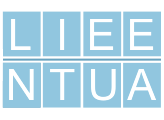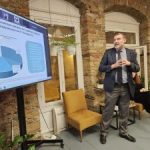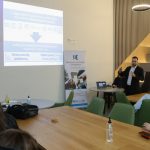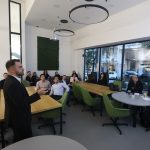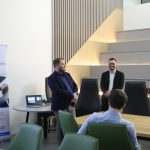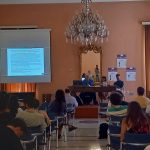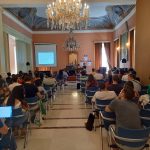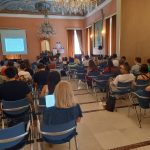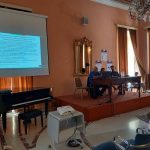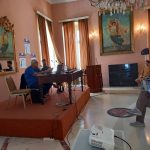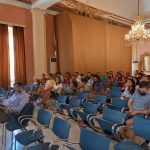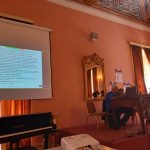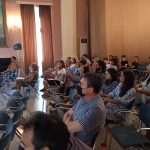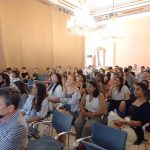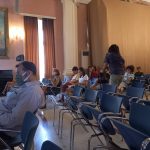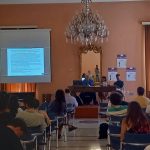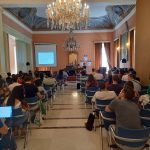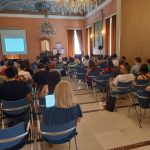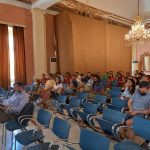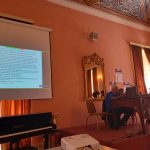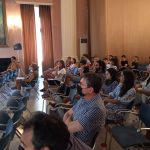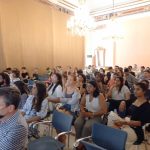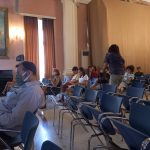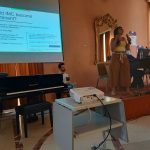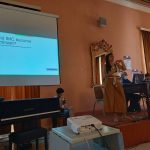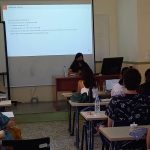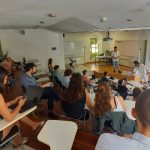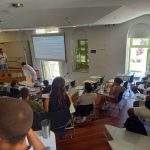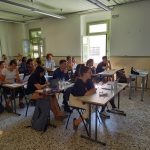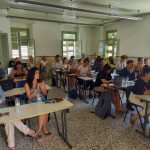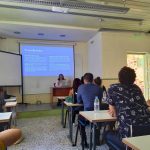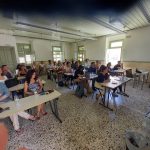Invited Speaker
Participation of A. Tsakanikas in the Open workshop of InSocial on Artificial Intelligence
A. Tsakanikas participated with a short thematic intervention at InSocial’s Open Workshop on Artificial Intelligence (AI), held on Thursday, January 25 at Impact Hub Athens.
The Workshop discussed the opportunities and challenges that IT creates for research, economic development, entrepreneurship and innovation, the challenges that IT poses to society such as bias, job losses and data security and privacy . Key issues of the necessary National Strategy of Greece for IT, the objectives for the development of IT and especially issues for sectors of the economy and society were also highlighted.
The event was recorded and is available as a Video Podcast from Innovation Talks.
On Wednesday, January 17, 2023, Dr. Ioanna Kastelli, (LIEE /National Technical University of Athens), took part as a distinguished speaker in the online panel of the prestigious Innovation Knowledge Development (IKD) seminar series. The seminar was titled “When is Industry Sustainable; New Perspectives on Sustainable Industrial Policies and Development”. Notably, the discussion was expertly moderated by Professor Smita Srinivas, accompanied by the insightful contributions of professors Lukasz Mamica and Keun Lee.
The overarching goal of the panel discussion was to shed light on the two-year-long endeavors of the research team. Their primary objective was to delve into the intricate web of factors that underpin the success of industrial policies. Through a comprehensive exploration, the panel sought to understand the multifaceted challenges and emerging opportunities inherent in the formulation of effective and sustainable policies. Of particular importance was the need to strike a delicate balance between fostering economic development and upholding environmental responsibility.
In line with this ambitious agenda, the researchers meticulously curated a special issue that is slated for publication in the spring of 2023. This special issue, set to be featured in the esteemed Review of Evolutionary Political Economy, is themed around “Industrial Policy for Sustainable Development”.
Find the issue at the link: https://link.springer.com/journal/43253/volumes-and-issues/4-1
More information about the IKD panel and seminars can be found on the Open University website: https://www5.open.ac.uk/ikd/events/ikd-seminar-series-when-industry-sustainable-new-perspectives-sustainable-industrial-policies
The “IN CONVERSATION” series (Chris Freeman Centenary Lecture Series), jointly organised by CRIS-IS.ORG & UNU-MERIT, portray prominent innovation scholars of the day in the form of intellectual-biographical interviews with other senior scholars.
In the 10th event Franco Malerba (Full Professor of Applied Economics. President of ICRIOS, Bocconi University) was interviewed by Richard Nelson (George Blumenthal Professor Emeritus of International and Public Affairs, Business, and Law at Columbia University) on 11 OCTOBER 2022 at 1 pm GMT | 2 pm – London | 9 am – New York | 10 am – Brazil | 2 pm – London | 3 pm – Denmark, France, Italy & South Africa | 4 pm – EAT | 6.30 pm – India | 9 pm China & Malaysia | 10 pm – Tokyo | 11 PM Canberra
The event was moderated by Sunil Mani (Centre for Development Studies)
Panel of discussants: Xiaolan Fu (University of Oxford), Nicholas Vonortas (George Washington University) and Yannis Caloghirou (NTUA)
You can watch the video of the event here: https://www.youtube.com/watch?v=ppbe-mafms8&ab_channel=CRIS1
Also, you can watch here the Opening Lecture by Richard Nelson (and his introduction by Yannis Caloghirou) in the 15th International Globelics Conference that took place in Athens on 11-13 October 2017: https://www.youtube.com/watch?v=7kr-8N5vuPQ
Structure of the program (2 hours split up as follows)
Brief intro to the program and introducing NELSON (by SUNIL) 5 minutes
i. Introductory remarks by NELSON and FRANCO is introduced (10 minutes) followed by a conversation between them as follows
ii. Formative years and major influences – (10 minutes)
iii. Contributions, Critique and weakness, Current work & future course – (35 minutes): starting from the important contributions of FRANCO, evolving towards a critical evaluation of his work. Then moving on to discussions on what next given the changing circumstances, how the theoretical contributions are relevant in current circumstances etc. It is a platform to convey what they want future generations to take from FRANCO and how they can further develop standing on the strong base that was created.
iv. Comment on Status of Innovation Economics and what next? – (10 minutes)
Some of the possible questions could be the following. However the speakers can shape it the way they want it to be!
- How did you end up doing research on innovation?
- What were your most important contributions to the field?
- To what degree have you engaged in teamwork and collective research?
- How do you see the relationship between economics and innovation studies?
- How do you see the role of innovation policy and innovation politics in development strategies?
- How do you see the future for innovation studies?
- At what level should we study innovation – micro, meso and macro?
- What kind of methods should we use to study innovation and economic development?
- What kind of advice would you like to give to young innovation scholars?
- What role can innovation play in meeting global challenges?
BREAK – 5 MINUTES
v. Discussion (1 hour): For the 1 hour discussion a panel of scholars [Xiaolan Fu, Nicholas Vonortas & Yannis Caloghrou] will ask questions or make comments on FRANCO’s work. After FRANCO’s response to them the forum will be open for questions from the general audience.
Συμμετοχή του Υπ. Διδάκτορα Γεώργιου Σιώκα στο 5o Συνέδριο “Sm@rt Cities – Digit@l Citizens”
 Ο Υποψήφιος Διδάκτορας Γεώργιος Σιώκας συμμετείχε ως προσκεκλημένος ομιλητής στο 5o Συνέδριο “Sm@rt Cities – Digit@l Citizens”.
Ο Υποψήφιος Διδάκτορας Γεώργιος Σιώκας συμμετείχε ως προσκεκλημένος ομιλητής στο 5o Συνέδριο “Sm@rt Cities – Digit@l Citizens”.
Συγκεκριμένα, την Τετάρτη 21 Οκτωβρίου 2020, συμμετείχε στο ψηφιακό πάνελ της 1ης συνεδρίας (10.00 – 11.30) με θέμα “Θεσμικές Παρεμβάσεις και η Αξιοποίηση «εργαλείων» στην Τοπική και Περιφερειακή Αυτοδιοίκηση”.
Ο τίτλος της παρουσίασης του ήταν “Οι καταλύτες για την επιτυχή υλοποίηση έξυπνων δράσεων στην Τοπική Αυτοδιοίκηση“. Μπορείτε να δείτε τη σχετική παρουσίαση εδώ.
Το Ίδρυμα Κρατικών Υποτροφιών (ΙΚΥ) και το Εργαστήριο Βιομηχανικής και Ενεργειακής Οικονομίας διοργάνωσαν την εκδήλωση με θέμα: «Αναδυόμενες Επιστημονικές και Τεχνολογικές περιοχές: Σχέσεις με τις νέες ανάγκες της αγοράς εργασίας», η οποία πραγματοποιήθηκε στις 22/1 στο αμφιθέατρο του Εθνικού Ιδρύματος Ερευνών .
Κεντρικός ομιλητής της εκδήλωσης ήταν ο Καθηγητής του George Washington University Νίκος Βονόρτας. Η ομιλία είχε ως θέμα: “Προκλήσεις Δημόσιας Πολιτικής και Διλήμματα Επιστημονικού Δυναμικού στην Οικονομία της Γνώσης” και παρουσίασε τις παγκόσμιες τάσεις στην απασχόληση και στον τρόπο με τον οποίο οι τεχνολογικές εξελίξεις τις επηρεάζουν.
Στο πλαίσιο της εκδήλωσης διοργανώθηκε στρογγυλό τραπέζι με θέμα «Επισκόπηση των νέων επιστημονικών και τεχνολογικών τάσεων και του ρόλου τους στο καινοτόμο οικοσύστημα της Κοινωνίας της Γνώσης» το οποίο συντονίστηκε από τον Άγγελο Τσακανίκα. Στο τραπέζι αυτό συμμετείχαν, μεταξύ άλλων, η Αιμιλία Πρωτόγερου, η οποία μίλησε για τις προοπτικές και τις προκλήσεις που αντιμετωπίζουν στην επαγγελματική τους σταδιοδρομία οι κάτοχοι διδακτορικού διπλώματος και ο Γιάννης Καλογήρου, ο οποίος αναφέρθηκε στη σημασία των διδακτορικών και γενικότερα των μεταπτυχιακών σπουδών στην οικονομία της γνώσης.
Conferences - Seminars Organisation
Conference for the presentation of the NETonKIE research project’s results, 14 December 2023
The Laboratory of Industrial and Energy Economics (LIEE) of the National Technical University of Athens (NTUA) organized a conference in the context of the completion of the research project “Greek Participation in European Research Networks and its Impact on Innovation and Knowledge-Intensive Entrepreneurship” (NETonKIE), which was funded by the Hellenic Foundation for Research and Innovation (HFRI).
The conference was conducted on December 14, 2023, in the Multimedia Amphitheater of the NTUA Library.
The Conference included the presentation of the project’s research results as well as a series of organized discussions (panels) with various types of actors (research groups of universities & research centers and business firms) participating in the European research Framework Programmes as well as policy actors.
More specifically, the topics of the organized discussions were the following:
- The expectations and benefits of start-ups from their participation in the Framework Programmes
- The Framework Programmes as a lever for enhancing innovation and technological upgrading of firms
- The importance of Framework Programmes for the research activity of Universities and Research Centers
- Public policies and business strategies for the better utilization of European Programmes
See the program (in Greek) of the conference here.
See the invitation (in Greek) of the conference here.
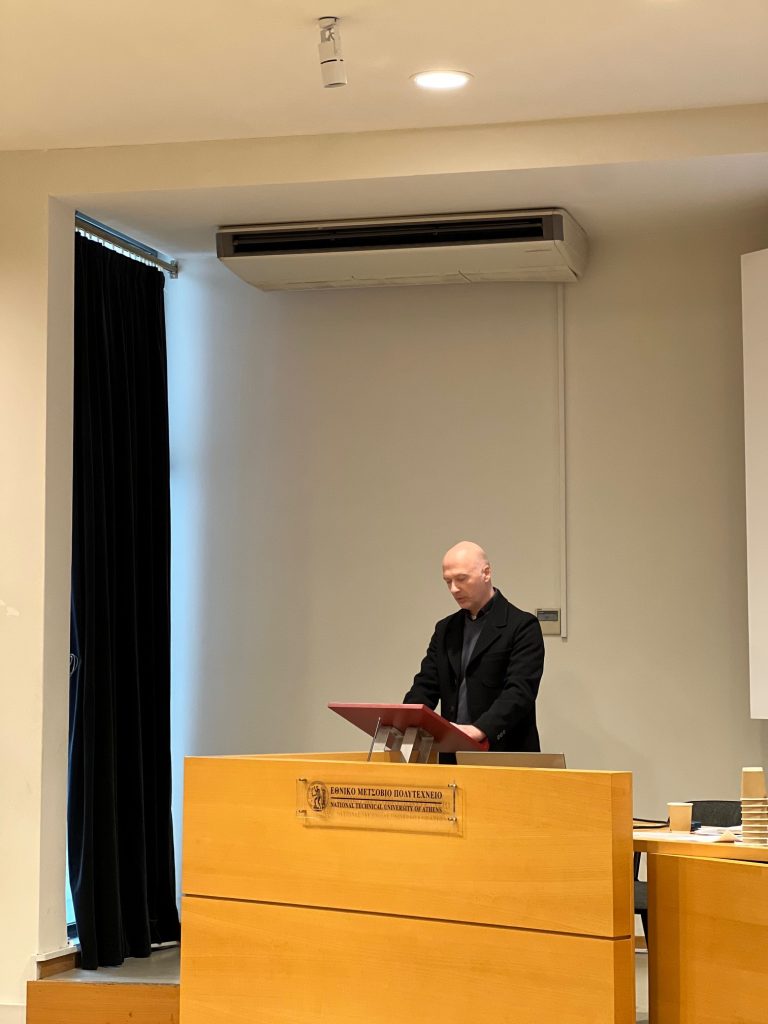
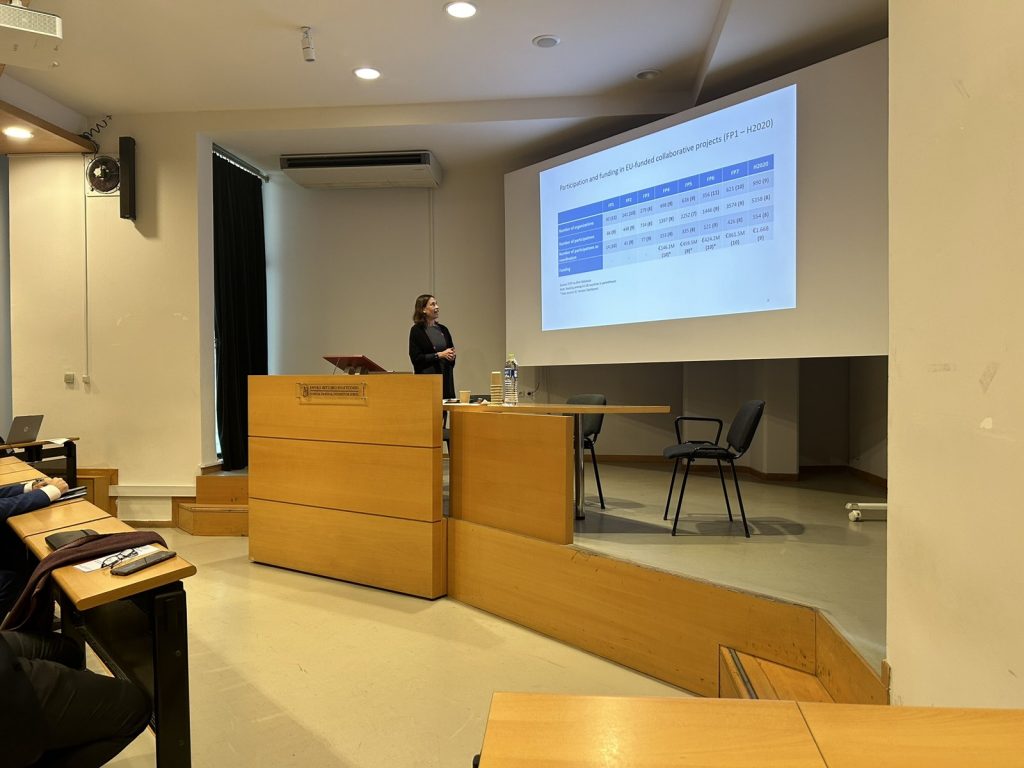
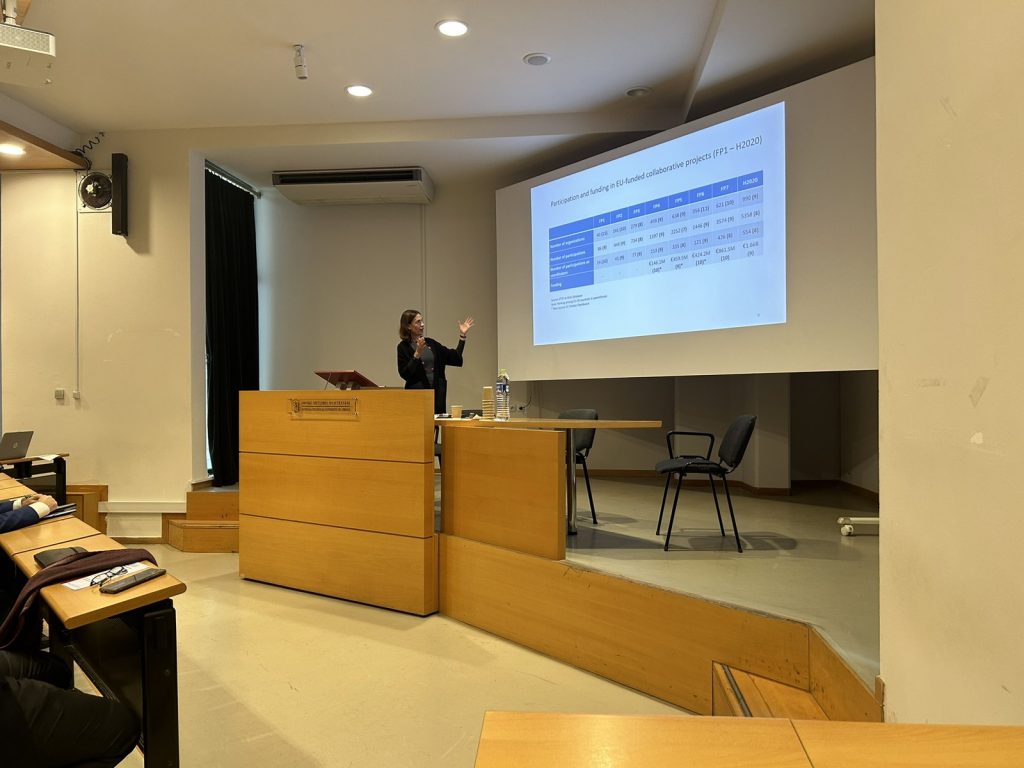
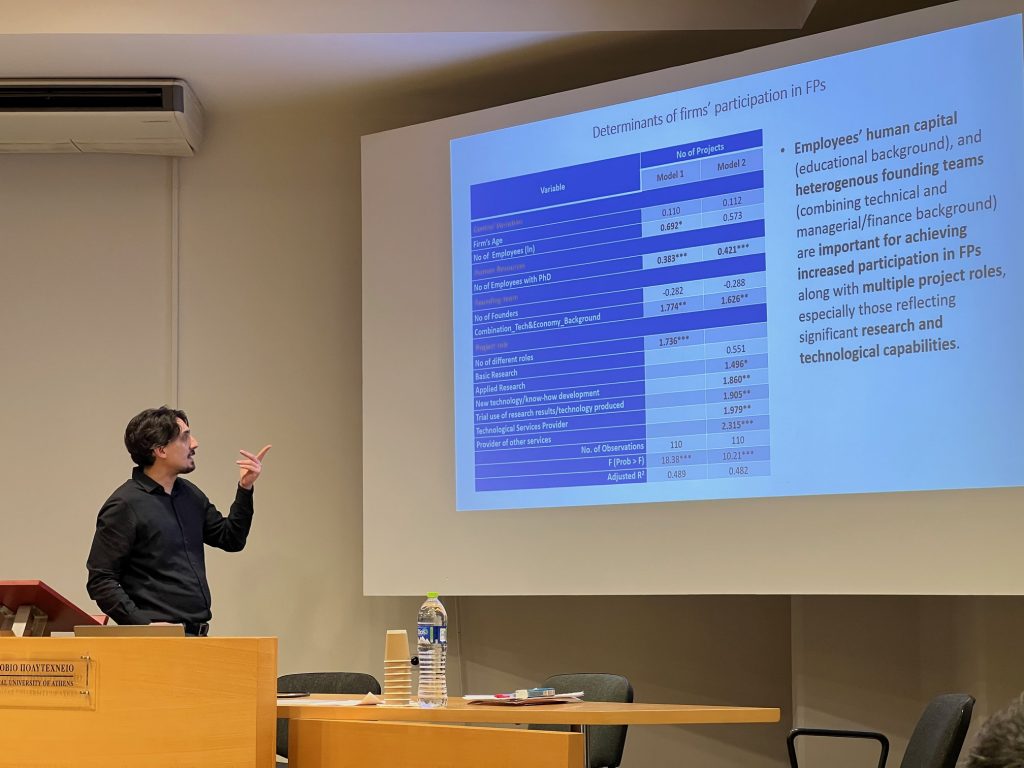
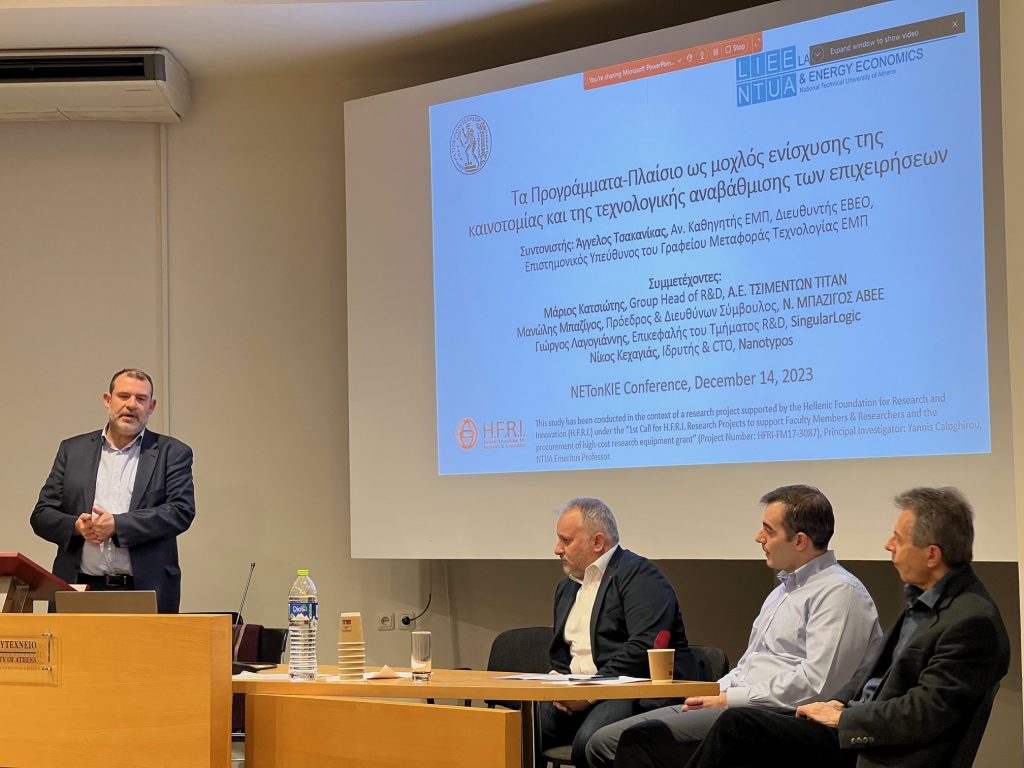
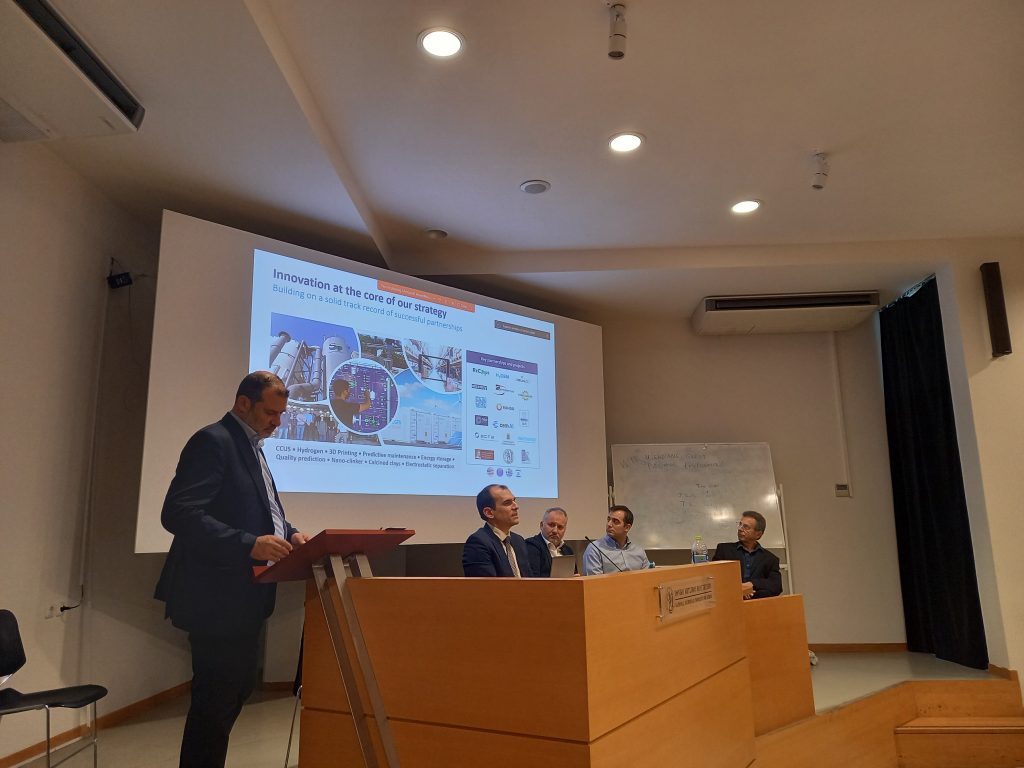
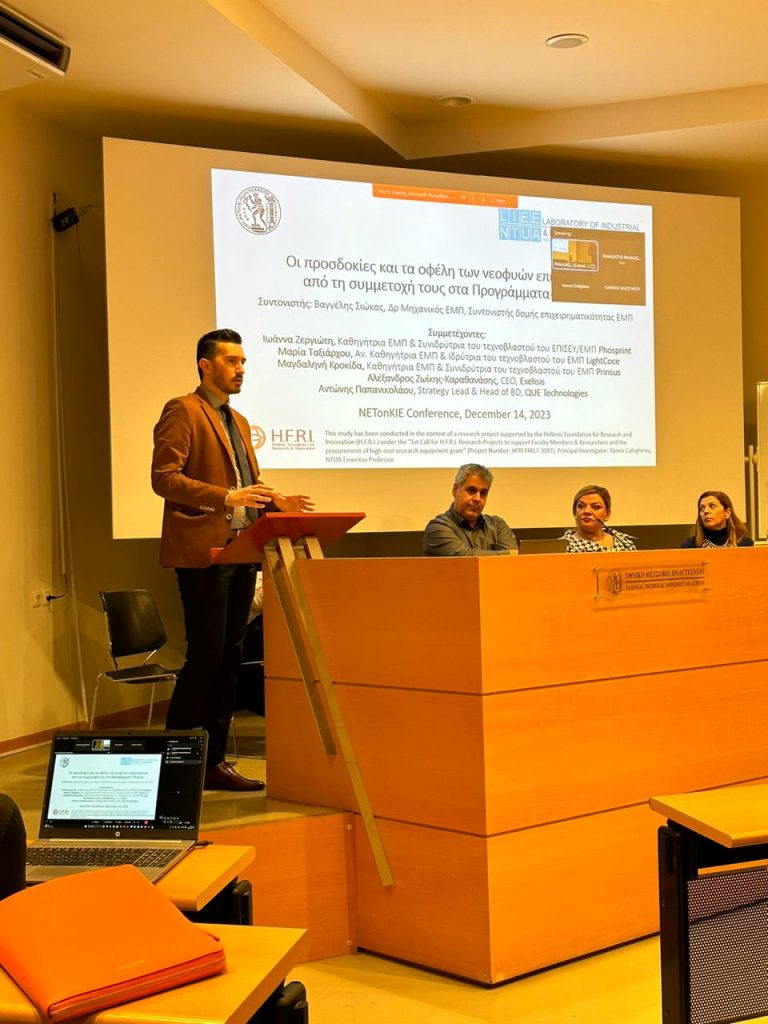
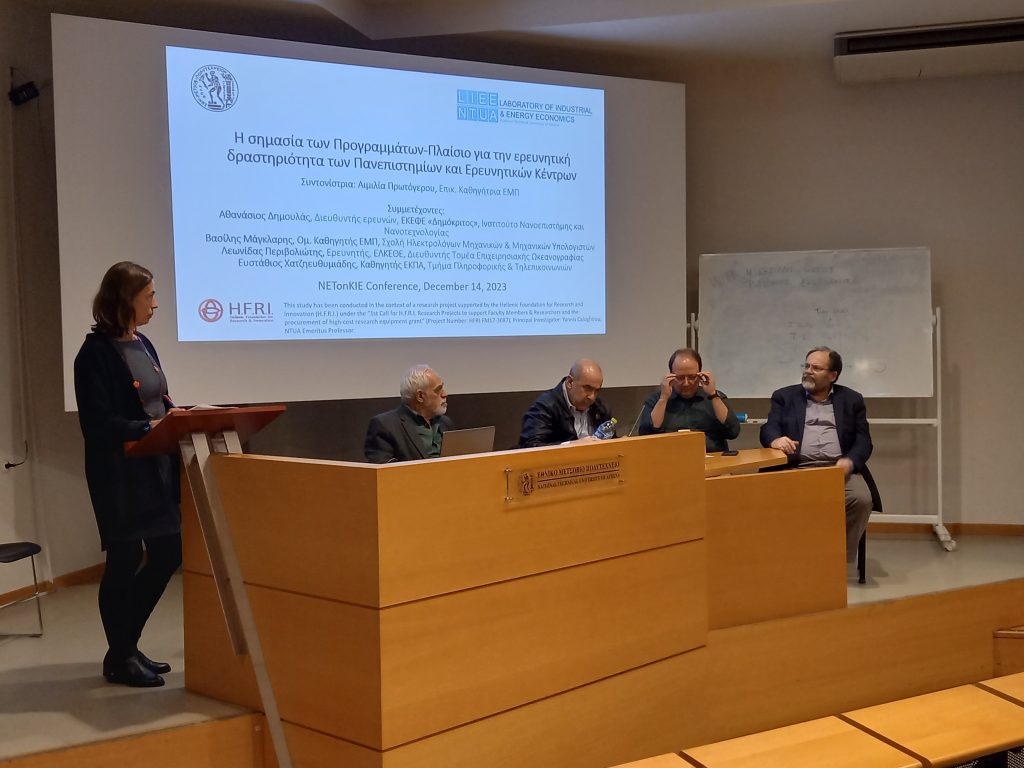
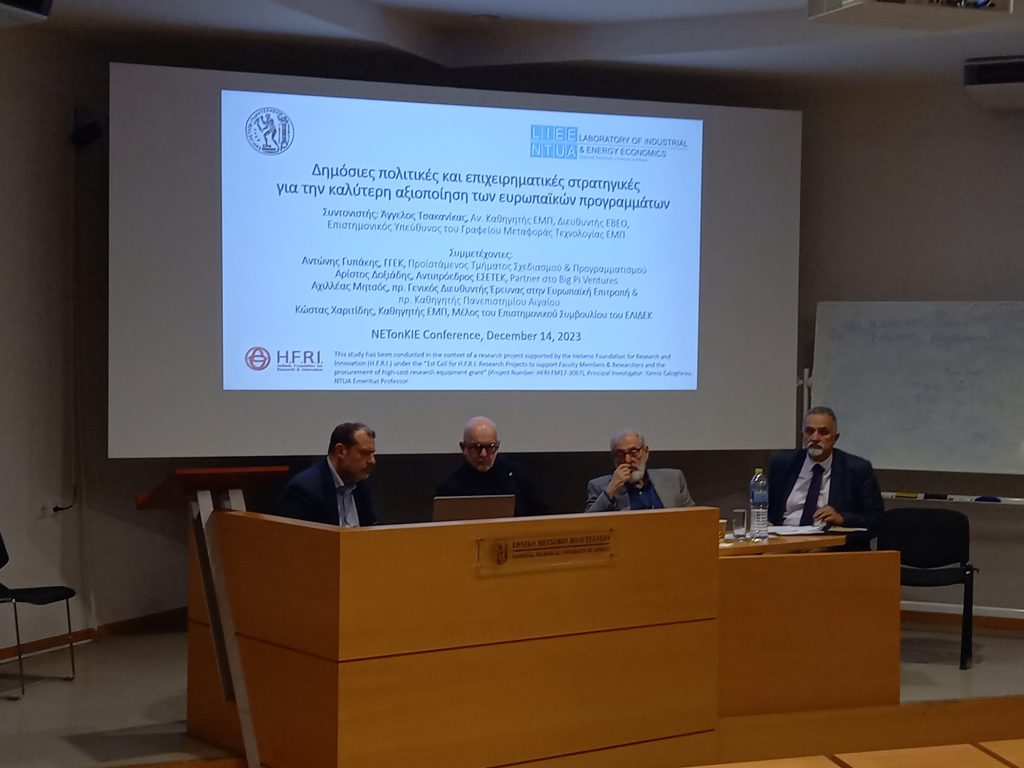
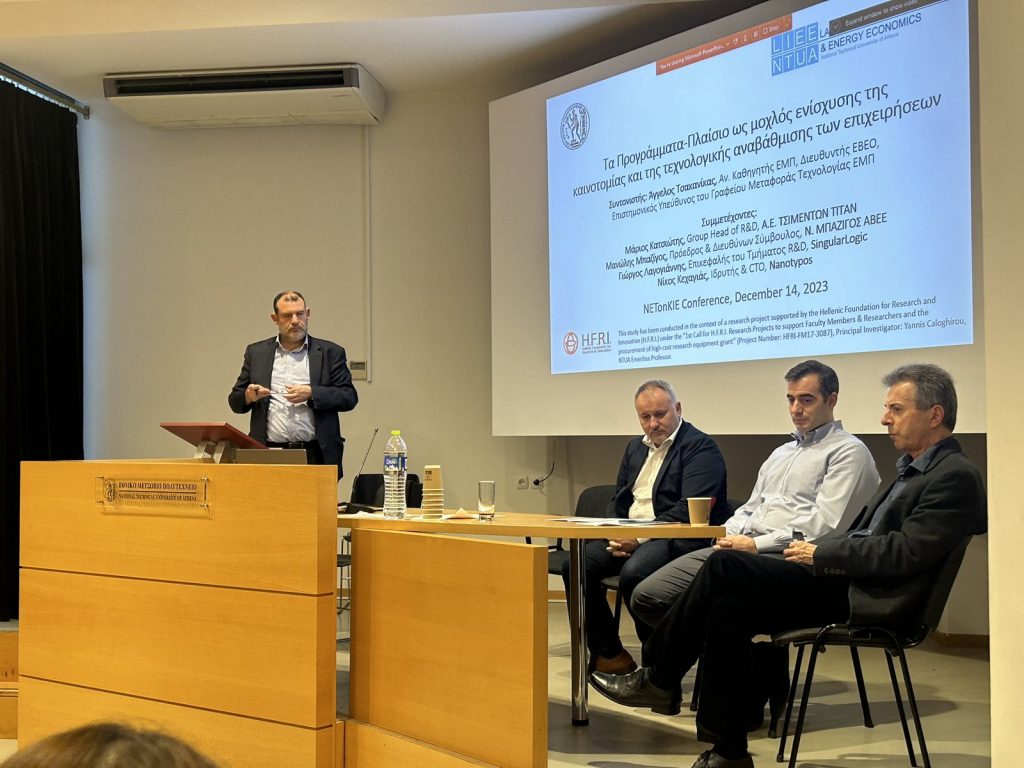
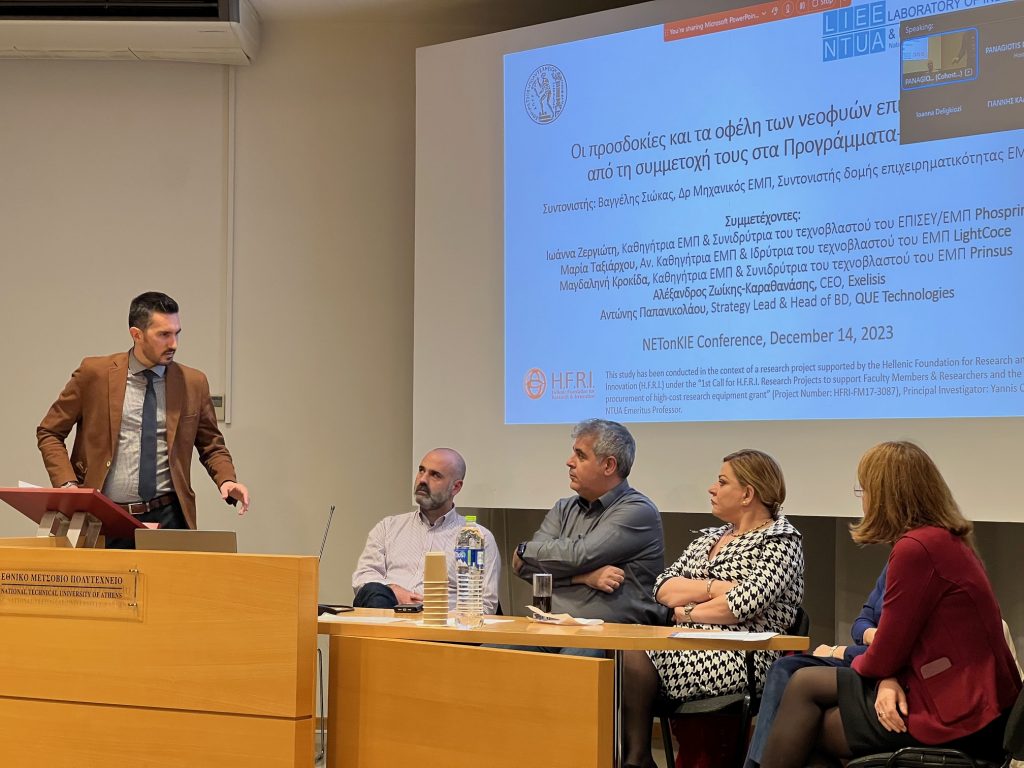
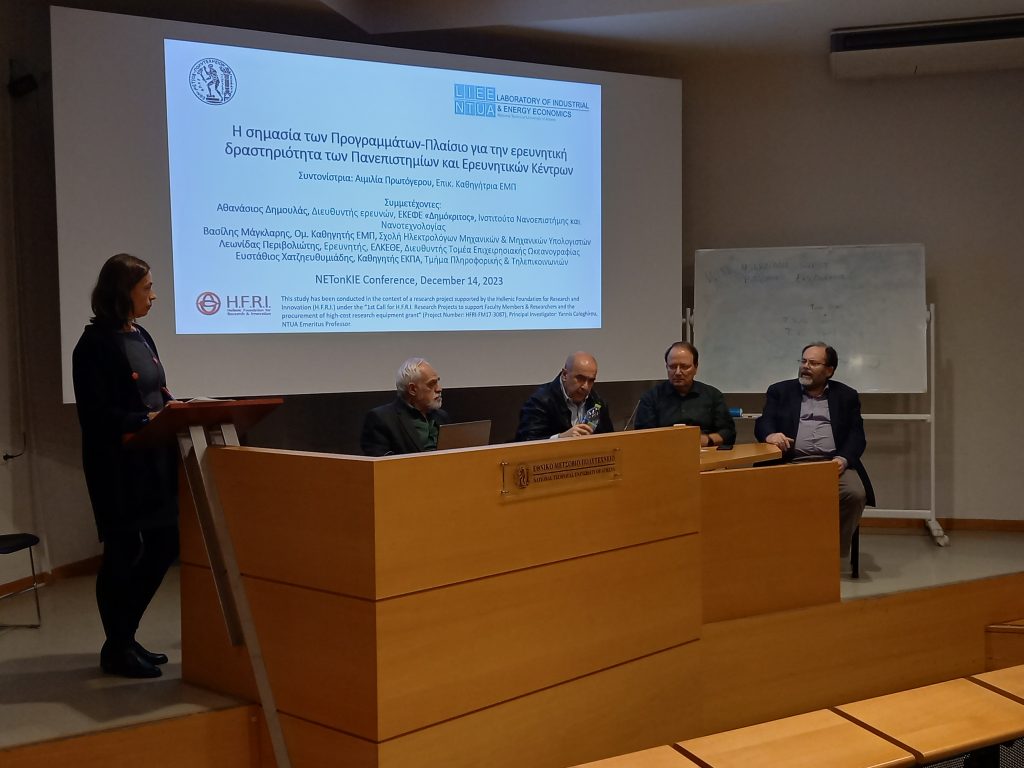
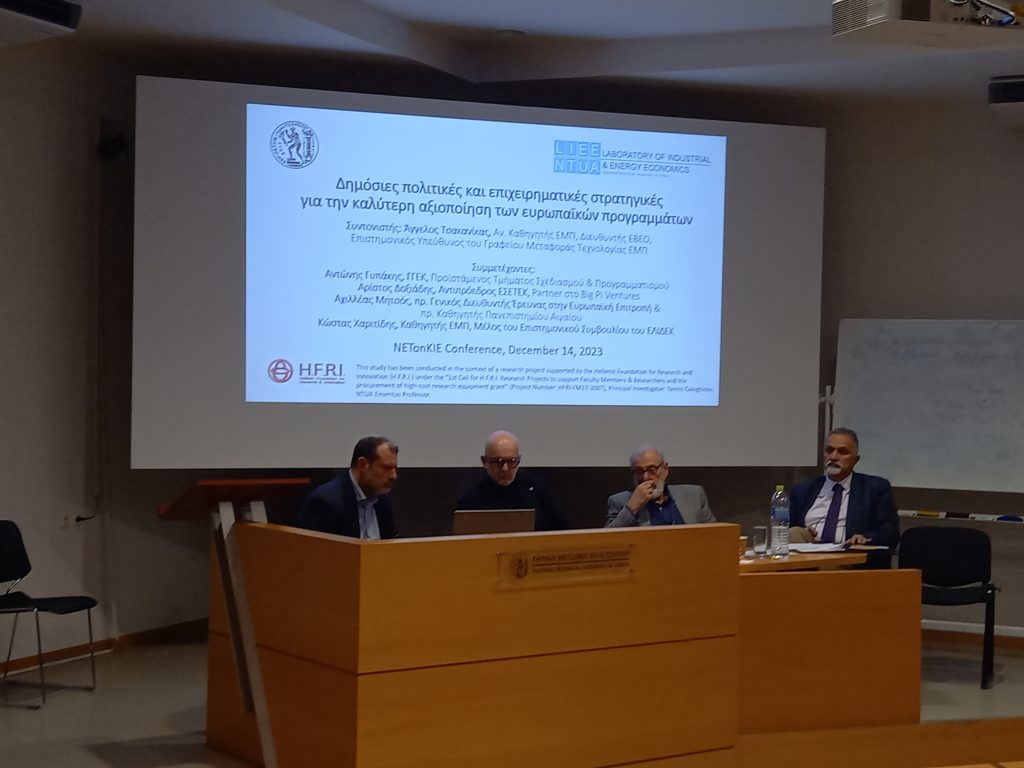
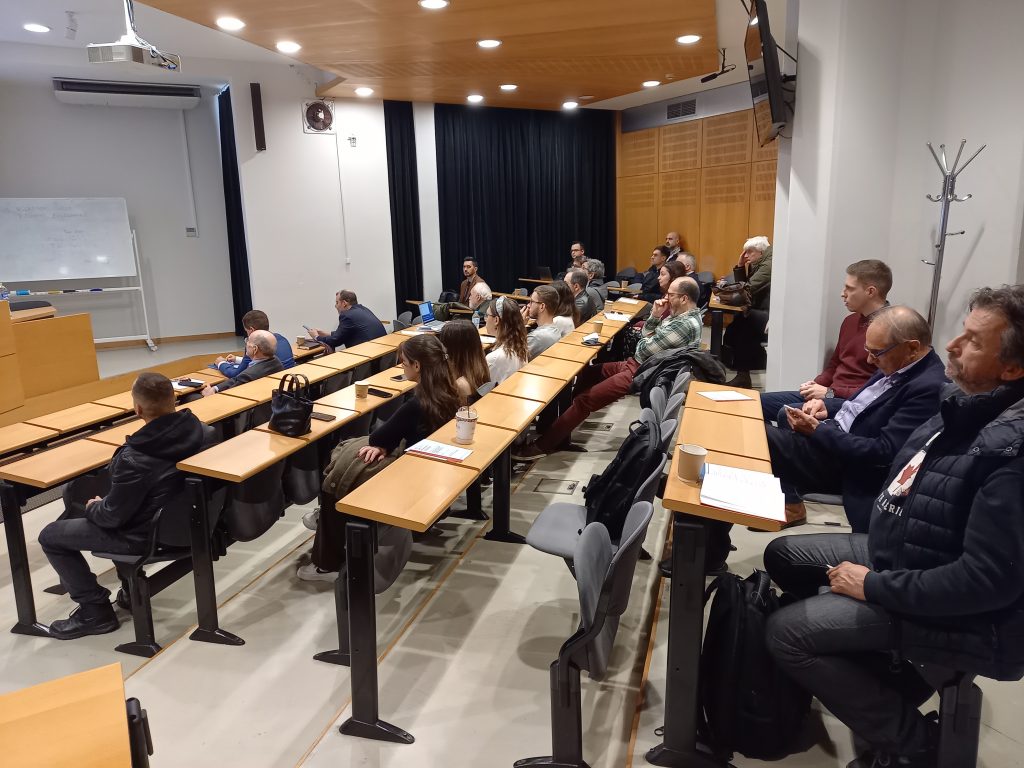
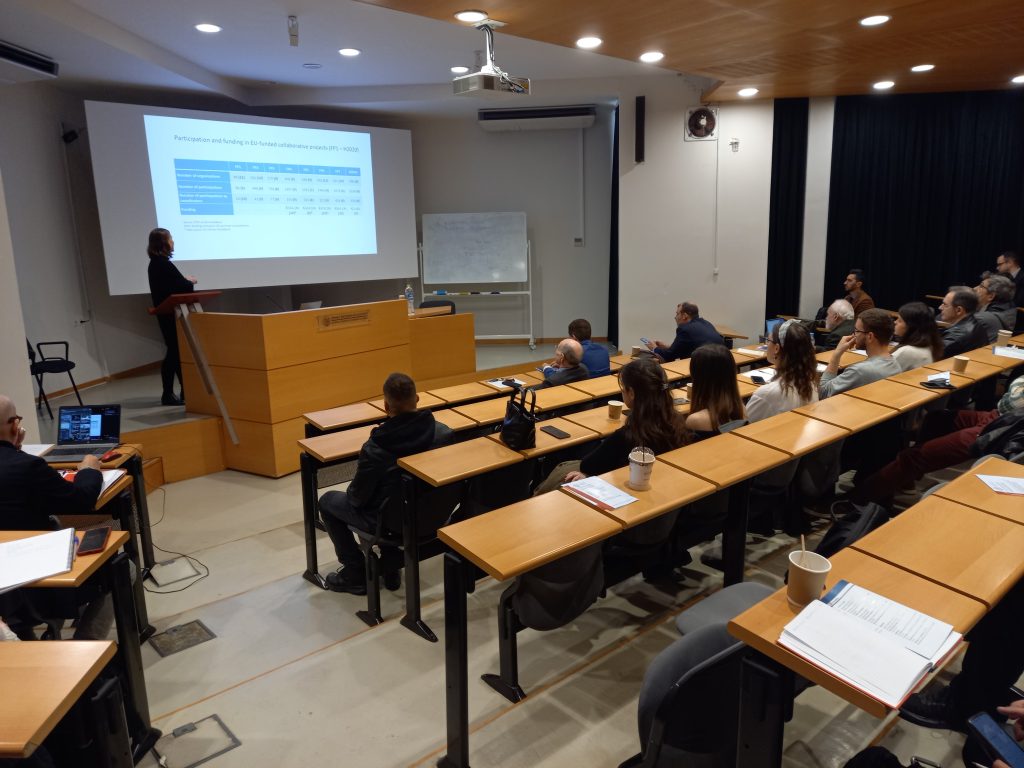
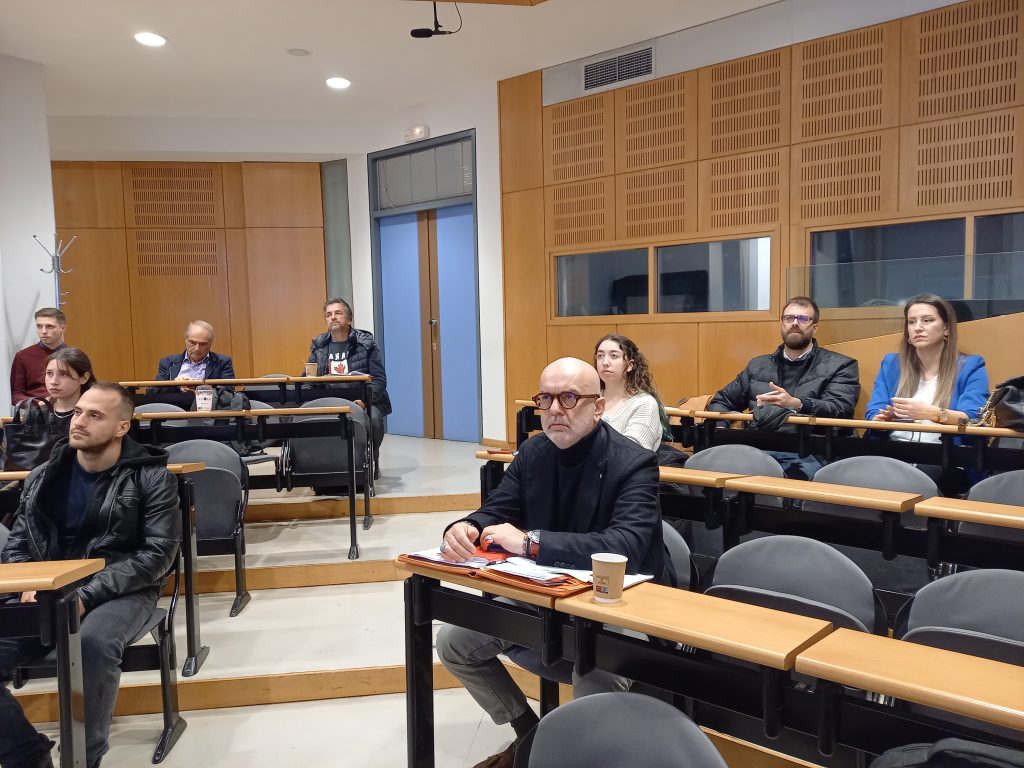
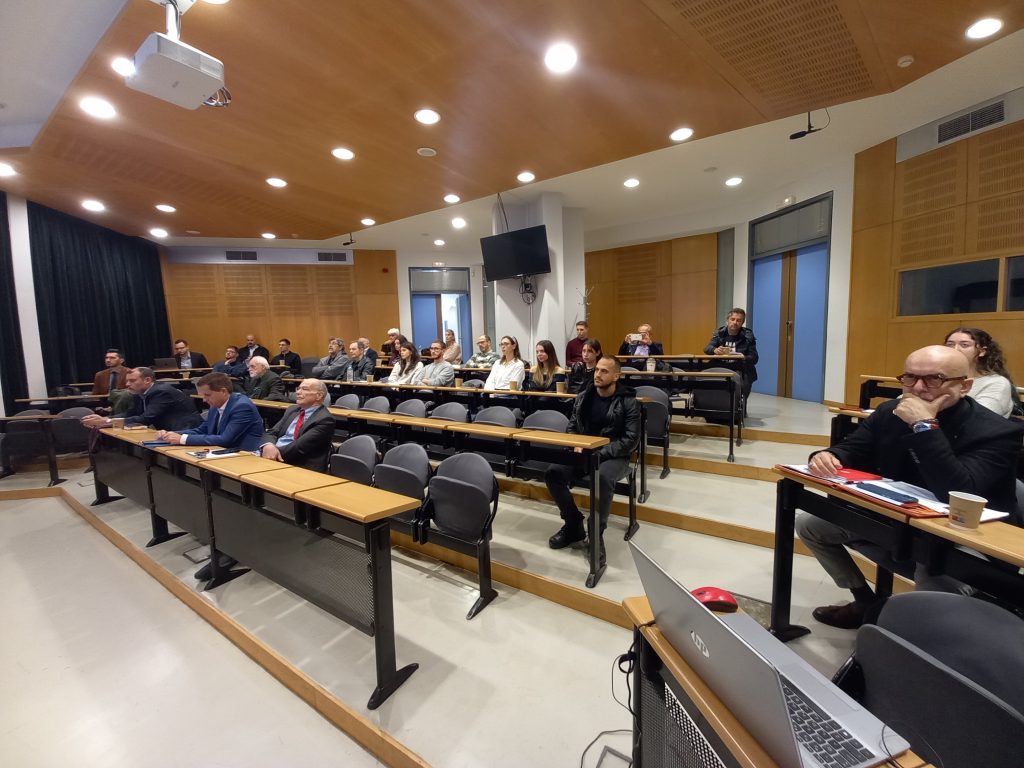
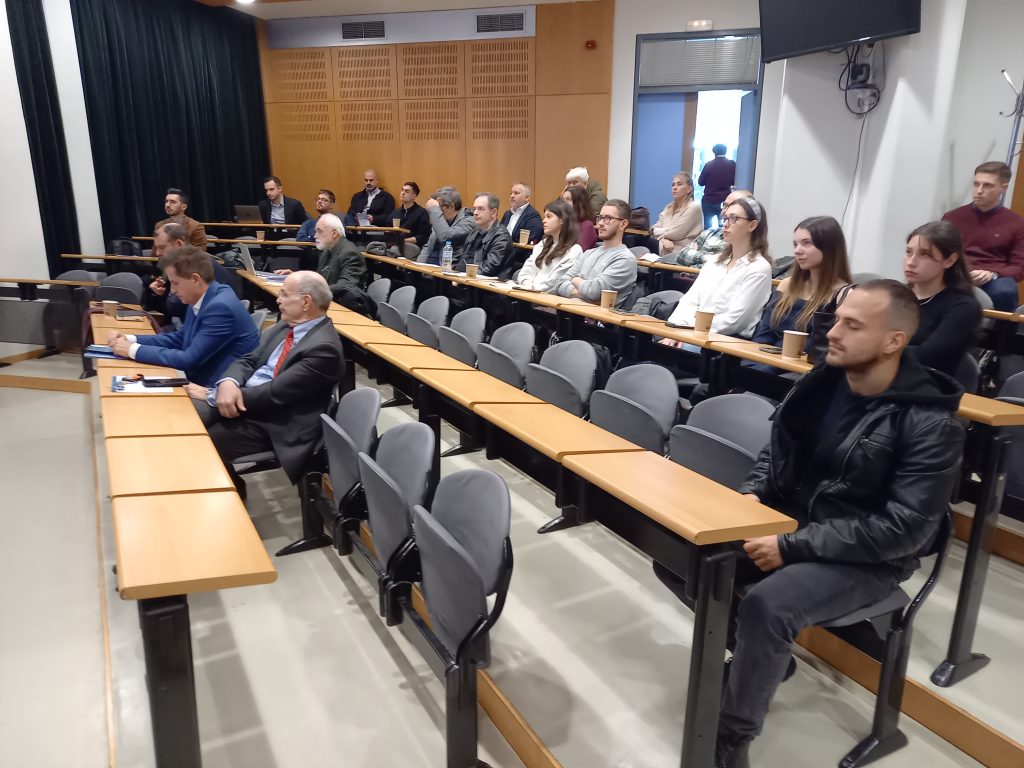
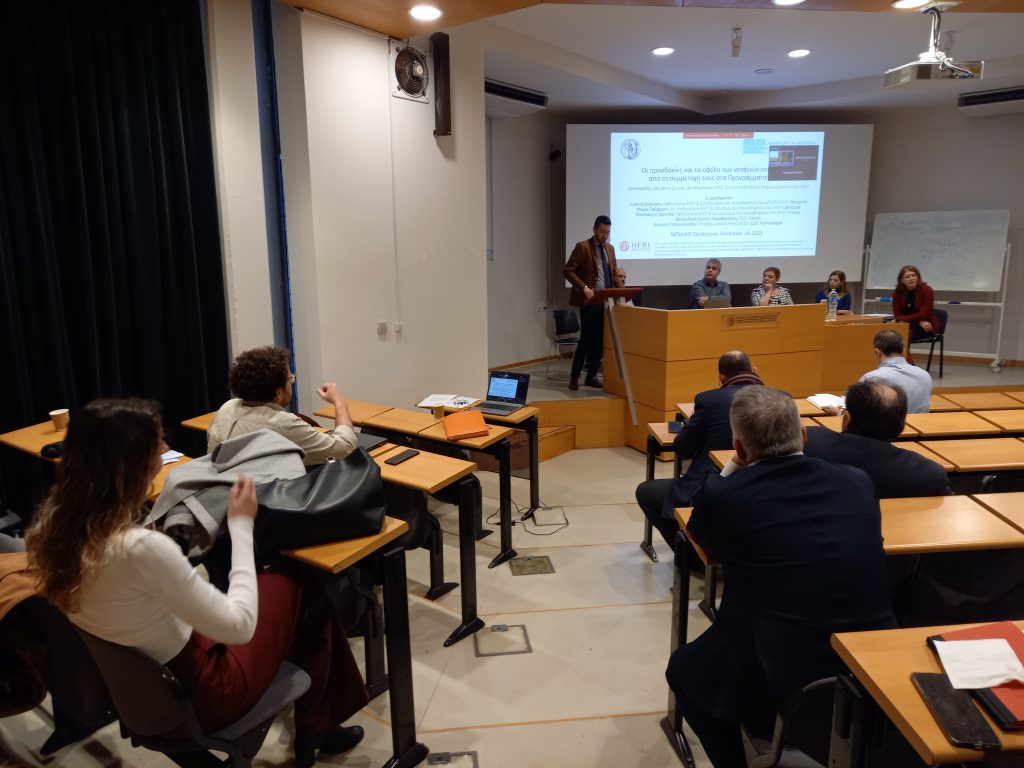
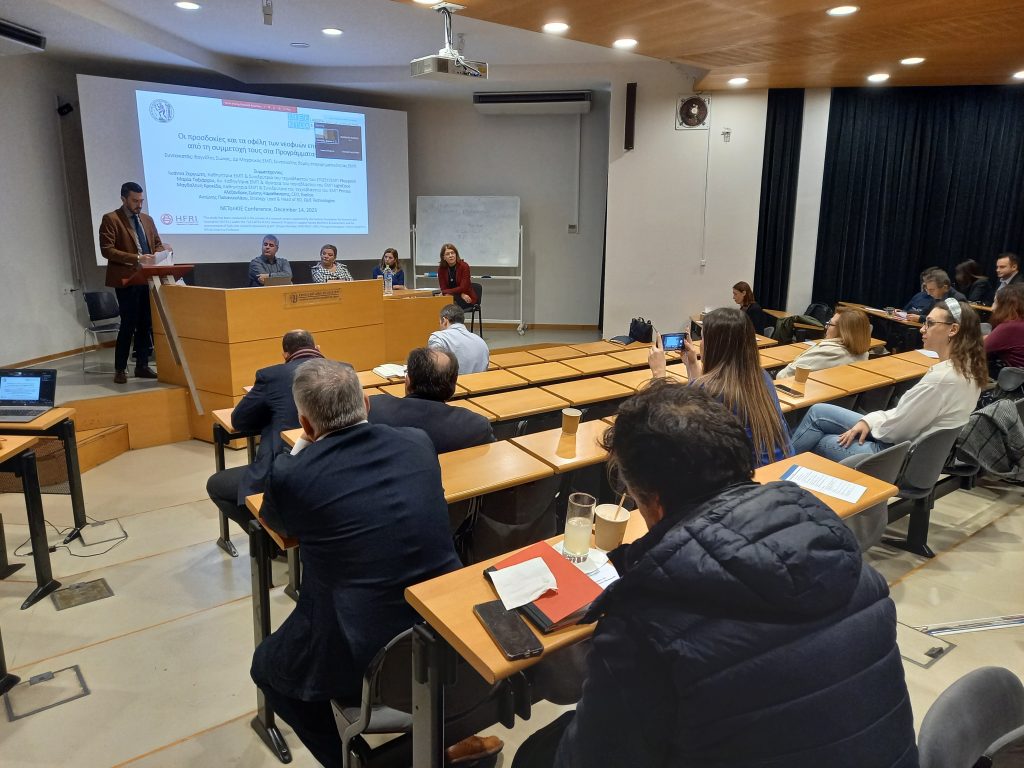
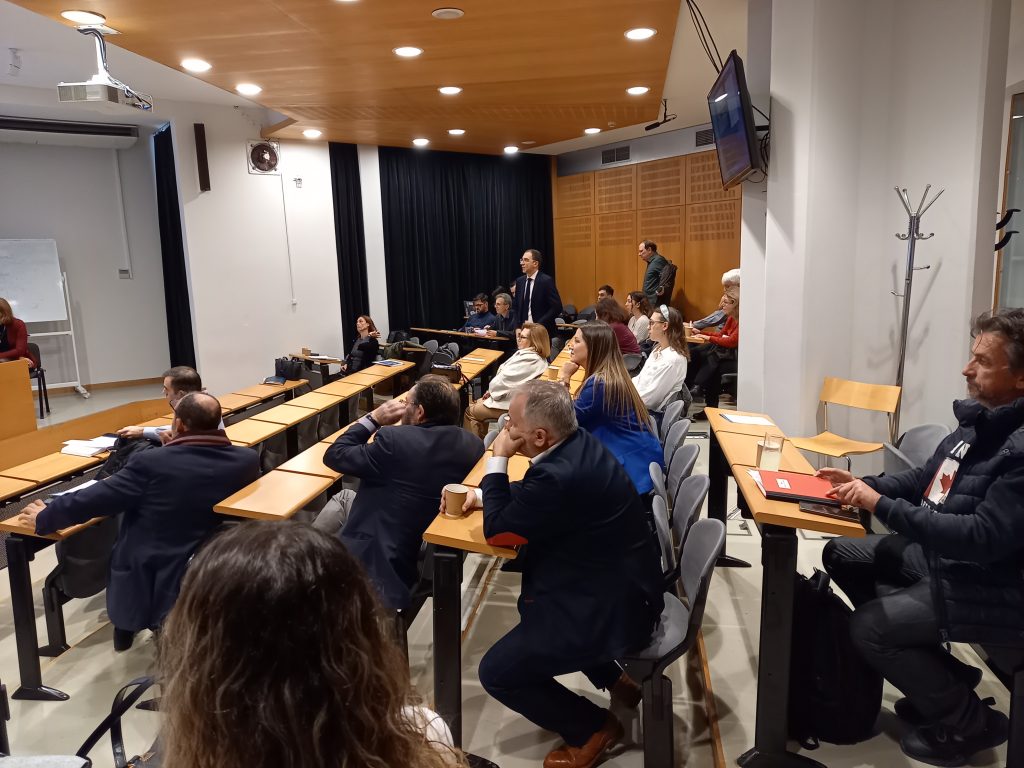
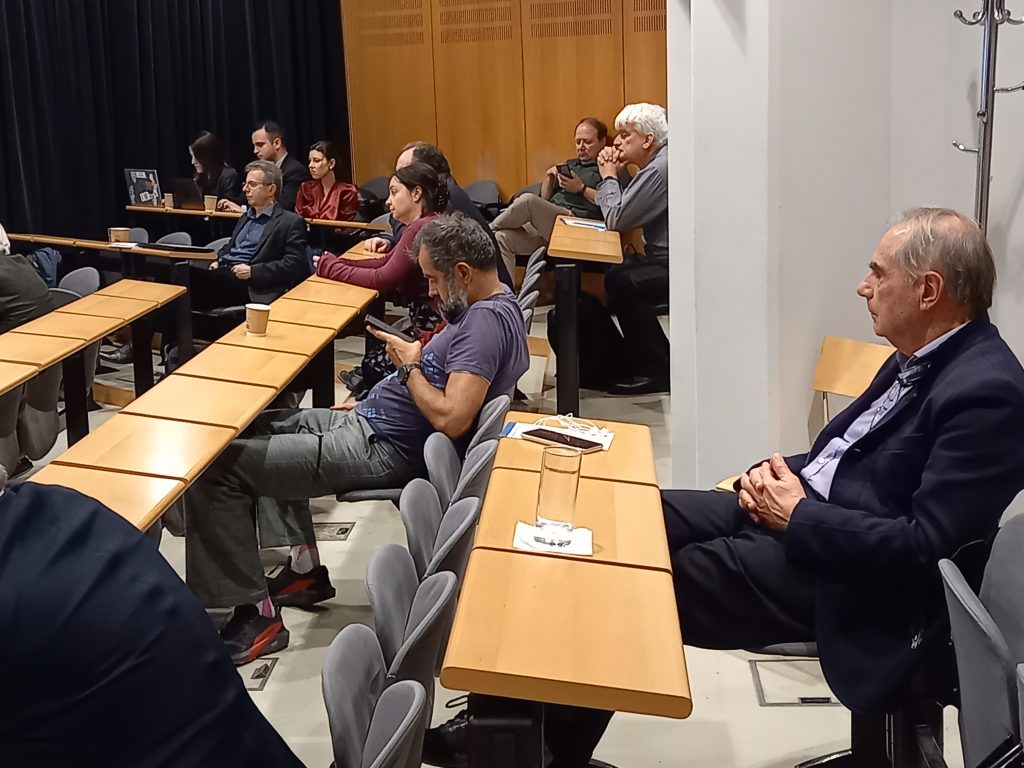
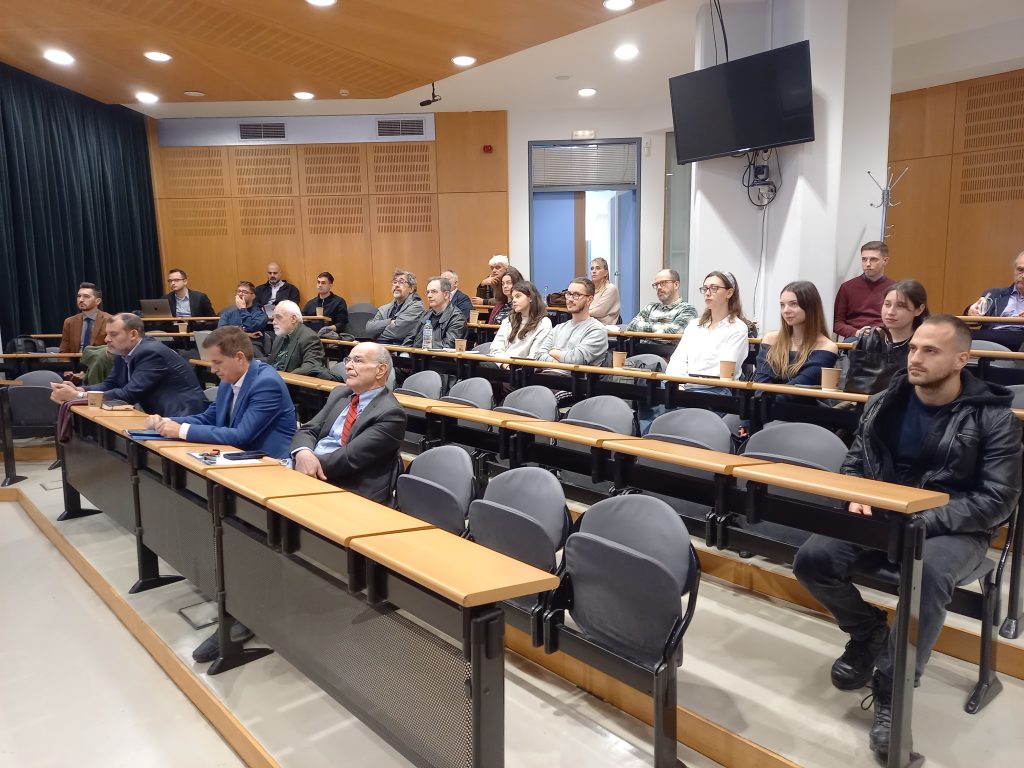
The Laboratory of Industrial and Energy Economics of the School of Chemical Engineering at NTUA (LIEE-NTUA) is glad to be a part of the 10th Anniversary celebration of Women Entrepreneurship Week, an initiative held with the participation of more than 140 universities worldwide.
On this occasion, LIEE-NTUA hosted the online event “Nurturing female-led innovation and entrepreneurship” on October 19, 2023, from 17:30 to 19:30 EEST.
This year’s event focused on the role of Technology Transfer Offices in empowering women in science and research, and highlighted innovative knowledge-intensive ventures from different sectors of economic activity.
Keynor Ruiz Mejías, Professor and Associate Researcher at the International Centre of Economic Policy for Sustainable Development (CINPE) of the National University of Costa Rica, carried out a full-time secondment from 13/2/2023 until 13/4/2023 at the Laboratory of Industrial and Energy Economics of the National Technical University of Athens (NTUA) in the context of the Horizon 2020 CatChain project (GA n. 778398).
In the context of his secondment, Prof. Ruiz Mejías made a seminar titled “Costa Rica: Export diversification and some GVC lessons from a small country” on April 4, 2023. The presentation of Prof. Ruiz Mejías was followed by a discussion in which the members of LIEE-NTUA took part.
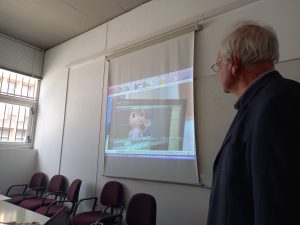
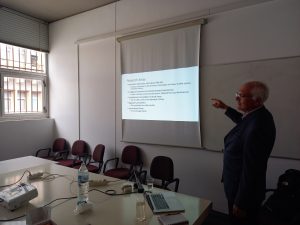
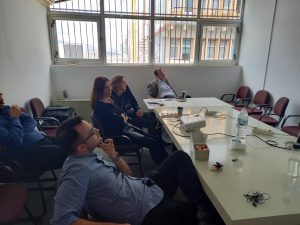
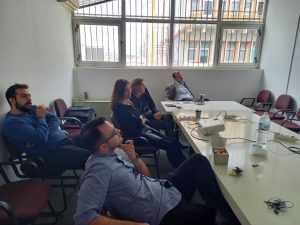
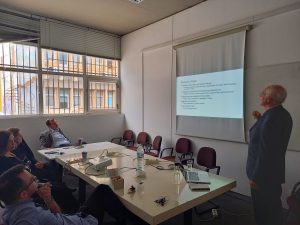
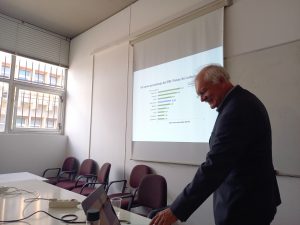
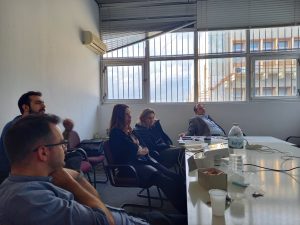
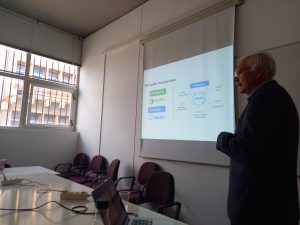
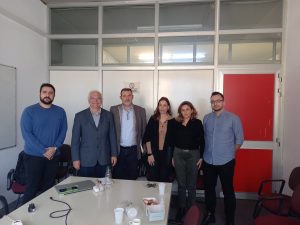
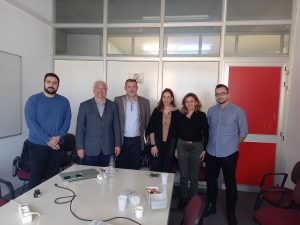
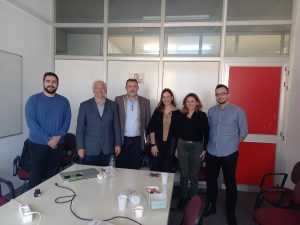
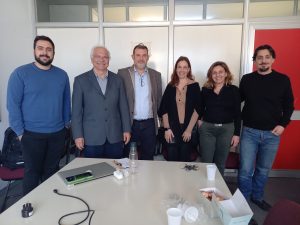
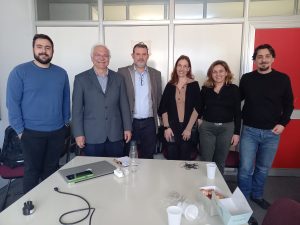
The Laboratory of Industrial and Energy Economics at the National Technical University of Athens (NTUA) organized a successful workshop on women entrepreneurship for the fourth consecutive year in the context of the global initiative “Women Entrepreneurship Week 2022”.
This year’s workshop entitled “Knowledge-intensive Women Entrepreneurship: Opportunities and Challenges” was organized online on October 20, 2022. The event highlights various aspects of female entrepreneurship, focusing on innovative knowledge-intensive ventures. At the same time, it gives emphasis on significant challenges and emerging opportunities in the Greek business ecosystem.
The workshop was coordinated by Aimilia Protogerou, Assistant Prof. (elected) at the Laboratory of Industrial and Energy Economics (NTUA), and is available on LIEE-NTUA’s youtube channel.
The Laboratory of Industrial and Energy Economics (LIEE) of the National Technical University of Athens (NTUA) is pleased to invite you to the online event “From research to market: promoting high technology women entrepreneurship”, organized as part of the Weekly Women Entrepreneurship initiative, on October 25, 2021 from 17:00 to 19:00. This global initiative was started by the Universities of New Jersey in the USA dealing with Entrepreneurship. This year it is held for the 8th year with the participation of more than 140 universities around the world (among them Babson, University of Michigan, UNC, Princeton, Cornell, University of Iowa, SetonHall, Georgetown etc.)
From Greece, for For the third consecutive year, the NTUA and the Laboratory of Industrial and Energy Economics of the School of Chemical Engineering participate in collaboration with the EPI nodule incubator of the NTUA. The aim of the event is to highlight important aspects of women’s entrepreneurship in our country. In our event we will host both women from the academic field with a strong research presence who are also interested in utilizing the results of their research, but also women with a strong research profile who try to turn their research into specific products and services of knowledge and technology intensity. In addition, we will try to highlight the need to strengthen women’s entrepreneurship through the institution of personalized coaching.
Conferences - Seminars Participation
The Ph.D. candidate D. Stamopoulos participated in the workshop “Quality Criteria & Personalized Services” organized by the Ministry of Youth and Education on Friday, March 29, 2024, at the VIOS Workplace auditorium.
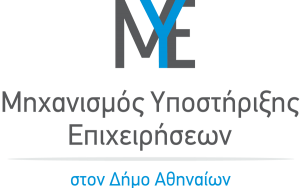
In the first section of the workshop, the sets of quality criteria and the Self-Assessment Tool for businesses created by the Entrepreneurship Support Mechanism were presented. A case study of a company that has used the tool was extensively analyzed, along with recommended actions to improve its performance.
The theme of the second section of the workshop concerned the analysis of advisory services offered by the Mechanism to the beneficiary businesses of the action. Specifically, services such as business plan development, marketing plan, and market research implementation were presented.
You can view the workshop presentations at the following links:
- “Sets of quality criteria and Self-Assessment Tool”
- “Personalized Advisory Services for the businesses of the Municipality of Athens”
The event was implemented within the framework of the Operational Program “Attica 2014-2020” Action: “Support for the Development of New Enterprises in RIS sectors by utilizing closed stores in the center of Athens (commercial triangle)”, Code ΟΠΣ 5158568, and is funded by the European Union (European Social Fund (ESF)) and national resources through the Public Investment Fund (ΠΔΕ).
The Contracting Authority is the Athens Development and Tourism Promotion Company (EATA), and the Contractor of the project is ICAP Advisory.
Photographs from the seminar below:
The French Polytechnic of Compiègne in collaboration with the Laboratory of Industrial and Energy Economics of the National Technical University of Athens, the Chamber of Cyclades, the University of the Aegean and the support of the Municipality of Syros – Ermoupoli, organize in Syros from 4 to 6 July 2022 the “EPOG Master Course Conference 2022”. This is the annual Conference of the distinguished European postgraduate program EPOG+ (Economic POlicies for the Global transition), which is coordinated by the French Polytechnic of Compiègne with the participation of 35 university institutions from Europe and the rest of the world.
EPOG+ falls under the category of Erasmus Mundus Joint Master Degrees supported by the European Commission and is specialized in economics and in particular in Economic Policies for the global transition with three major directions: a) Knowledge, Innovation and Digital Transition, b) Macroeconomics, Financial and Socio-economic Transition, c} Development, sustainable development and Ecological Transition. NTUA participates through the Laboratory of Industrial and Energy Economics in the academic network of universities that are members of EPOG+.
The Conference will address issues related to the objectives of the program and global challenges related to growing economic and other inequalities, the major ecological crisis, rapid technological developments and the forced reorientation of economic growth and development towards sustainability and mitigation of inequalities. In addition, in conditions of uncertainty, it is imperative to review the basis of the economic policies in place that require the organic integration of the economic, social and environmental/ecological dimension and the formation of the corresponding capacities and skills for the planning and management of the necessary public policies.
The Conference will host approximately 150 delegates (academics, students and postgraduates, etc.) from Europe and the rest of the world and will conclude with a speech by the former Minister of Economics, Professor Nikos Christodoulakis as part of the session “Rethinking the global economy in turbulent times”.
You can find the posters of the three round tables of the Conference here.
Here are some highlights from the conference proceedings.
PhD Candidate George Siokas participated in the international scientific conference “4th SmartBlueCity Euro-Mediterranean Conference-Exhibition” which took part in hybrid form, at the Divani Caravel Hotel in Athens, Greece. At the conference, the title of his presentation was “The Economic Impact of the Smart City on the Greek National Economy based on Input-Output Analysis”. The co-authors of the presentation are Dimitris Stamopoulos, Petros Dimas and the Associate Professor NTUA Angelos Tsakanikas. The presentation took place on Saturday, October 10, 2020, at 10:00, in Thematic Unit 7 entitled “Tools and Technologies for Informed Decision-Making”.
LIEE/NTUA successfully participated in the 32th Annual Conference of EAEPE (European Association for Evolutionary Political Economy) that was held online, from 06 to 08 of September 2020. The general theme of this year’s EAEPE Conference was: “The Evolution of Capitalist Structures: Uncertainty, Inequality, and Climate Crisis“.
See the Conference Agenda here
The Emeritus Professor Yannis Caloghirou, the Associate Professor Aggelos Tsakanikas, the senior researchers Aimilia Protogerou and Ioanna Kastelli, the post-doc researcher Panagiotis Panagiotopoulos and the PhD Candidates George Siokas, Petros Dimas and Dimitris Stamopoulos participated with paper presentations as well as with a discussant and/or chairman role in the following four Sessions of two different Research Areas (E1. Industrial Policy and Development, E2. Entrepreneurship and Theory of the Firm, D. Innovation and Technological Change):
Research Area E2: ENTREPRENEURSHIP AND THEORY OF THE FIRM (1)
Chair and Discussant: Aimilia Protogerou
- Glykeria Karagouni: Questioning Feedback Loops Between Dynamic Capabilities (Dcs), Their Antecedents and Learning as Dc Outcome: The Context of the Study
- Dimitrios Stamopoulos, Georgios Siokas, Aggelos Tsakanikas: Absorption of Knowledge Flows in Greek Firms and its Determinants
- Panagiotis Panagiotopoulos, Aimilia Protogerou, Yannis Caloghirou: Dynamic and Ict Operational Capabilities in Local Authorities: Their Antecedents, Outcomes and the Role of the Organisation’s Environment
Research Area E2: ENTREPRENEURSHIP AND THEORY OF THE FIRM (2)
Chair and Discussant: Glykeria Karagouni
- Jessica Birkholz: Regional Entrepreneurship Culture: Individual Origins, Subconscious Attitudes and Impacts on Entrepreneurship Activities
- Vasilis Konstantinou, Ioannis Giotopoulos, Alexandra Kontolaimou, Aggelos Tsakanikas: Show Me How to Grow Fast in Turbulent Times: The Choice Between Training and Educational Attainment of Employees
- Aimilia Protogerou, Panagiotis Panagiotopoulos, Yannis Caloghirou: Entrepreneurship and Innovation in the Greek Innovation System: A Holistic Policy Approach
Research Area E2: ENTREPRENEURSHIP AND THEORY OF THE FIRM (3)
Chair and Discussant: Aimilia Protogerou
- Julie Elambert: How Can You Pay Someone a Few Cents an Hour? Crowdwork Platforms as Market Organizers and Their Successful Application of the Babbage Principle
- Taewon Kang, Giulio Bottazzi, Federico Tamagni: Persistence in Firm Growth: An Intra-Distributional Analysis
- Alessandro Sapio: Firm Growth and the Evolutionary Taxonomy of Financial Systems
- Jan Weber: Financilaization and Buyback and Their Impact on Corporate Profitability
Research Area E1: INDUSTRIAL POLICY AND DEVELOPMENT (1)
Chair: Yannis Caloghirou
Discussants: Yannis Caloghirou, Samuel Klebaner
- Keun Lee, Zhuqing Mao, Qu Di: The Gvc (Gloval Value Chains), Industrial Policy, and Industrial Upgrading: Automotive Sectors in Malaysia, Thailand, and China, Compared with Korea
- Renata Sliwa: Technological Disruption and Regulatory Governance. The Case of Ict Industry
- Luma Ramos, João Carlos Ferraz: Policy Capacity and Low Carbon Infrastructure: The Role of the Brazilian Development Bank Sophisticating the Wind Sector Domestic Production
- Ioanna Kastelli, Petros Dimas, Aggelos Tsakanikas: The Participation of Food – Beverage – Tobacco Industries in Global Value Chains: Empirical Evidence from Southern European Countries
Research Area E1: INDUSTRIAL POLICY AND DEVELOPMENT (2)
Chair: Tomasz Geodecki
Discussants: Tomasz Geodecki, Piotr Kopyciński
- Georgios Siokas, Dimitrios Stamopoulos, Petros Dimas, Aggelos Tsakanikas: The Economic Impact of the Smart City on the Greek National Economy Based on Input-Output Analysis
- Norio Tokumaru: Catalytic Policy Capacity and Dialogic Space in Mission-Oriented Innovation Policy as an Evolutionary Policy
- Kobil Ruziev: Post-Communist Uzbekistan’s Peculiar Experiment with Development and Industrial Strategy
- Pawel Bialynicki-Birula: Regulations on Energy Communities in the EU
Research Area E1: INDUSTRIAL POLICY AND DEVELOPMENT (3)
Chair: Łukasz Mamica
Discussants: Łukasz Mamica, Norio Tokumaru
- Samuel Klebaner: The Emergence of a New Industry Through a Multi-Level Political Work: The French Labor Unions and the Medical Imaging Sector
- Emilia Ormaechea, Luciano Moretti, Joel Sidler: Industrial Policy and Development in Peripheral Economies: Reflections About Argentina
- Iurii Bazhal: Industrial Policy in Contemporary Crisis: Innovation for “smart Specialisation”
- Yannis Caloghirou, Aggelos Tsakanikas, Aimilia Protogerou, Panagiotis Panagiotopoulos: Industrial Restructuring, Technological Transformation and Development in a Peripheral European Country in the Times of Covid-19 Pandemic. The Case of Greece in the Aftermath of a Decennial Deep Crisis and in View of a Possibly Worse Consequent Reces
Research Area E1: INDUSTRIAL POLICY AND DEVELOPMENT (4)
Chair: Ioanna Kastelli
Discussants: Ioanna Kastelli, Pawel Bialynicki-Birula
- Monika Mazur-Bubak: Energy Security in the Times of Health and Unemployment Crisis on the Household Level
- Jakub Glowacki: The Importance of Photovoltaics and Covid-19 in the Process of Increasing the Share of Renewable Energy in Energy Production in Poland
- Lukasz Mamica: Willingness to Pay for Energy from Renewable Sources Among the Residents of the City of Krakow
Research Area D: Innovation and Technological Change
Chair and Discussants Ben Vermeulen
- Adam Oleksiuk: Pro-Innovative Orientation of Employees in Public Sector in Poland Based on Own Research
- Angela Dimitropoulou, Yiotopoulos Ioannis, Protogerou Aimilia, Tsakanikas Aggelos: Does the Innovativeness of Creative Industries Help Their Business Clients to Innovate?
- Mariia Shkolnykova: Diffusion of Radical Innovation of Biotechnology Smes: Does Proximity Matter?
- Yelda Erden Topal, Erkan Erdil, Arsev Umur Aydinoglu: Development of Concentrated Solar Power / Solar Thermal Energy Technologies Sector in Turkey: Local Integration to Global Value Chains Through International Channels
Για πέμπτη χρονιά ο ΚΥΚΛΟΣ ΙΔΕΩΝ διοργάνωσε το ετήσιο συνέδριό του με γενικό θέμα «Η Ελλάδα Μετά». Το συνέδριο «Η Ελλάδα Μετά V» διεξάχθηκε στις 11-12 Οκτωβρίου 2021, στο αμφιθέατρο του Μουσείου Μπενάκη με κεντρικό θέμα το ερώτημα: Από την κρίση στην κανονικότητα ή η κρίση ως κανονικότητα;
Press
“In January 2020 we knew very little about COVID-19. Today, 10 vaccines are already available. This is α triumph of medical innovation and was made possible only by protecting intellectual property rights.”
Link to full article here
Οι επιχειρήσεις βρίσκονται στην καρδιά της παραγωγής καινοτομίας σε μια οικονομία. Η ικανότητά τους να διεξάγουν καινοτομικές δραστηριότητες, να αλληλεπιδρούν με το εξωτερικό περιβάλλον ανιχνεύοντας και αξιοποιώντας νέες επιχειρηματικές ευκαιρίες, και να αναπτύσσουν την απαραίτητη γνώση που ενσωματώνεται σε νέα προϊόντα ή διαδικασίες είναι ένα σημαντικό χαρακτηριστικό κάθε εθνικού συστήματος καινοτομίας. Ποιες όμως είναι οι επιχειρήσεις στη χώρα μας που καλούνται να παίξουν αυτό τον ρόλο;
“Οι τεχνοβλαστοί και το ελληνικό πανεπιστήμιο”- Άρθρο του Αν. Καθ. Α. Τσακανίκα στην Money Review
Η ίδρυση μιας εταιρείας – τεχνοβλαστού, γνωστής ως spin off, θεωρείται κοινή πρακτική σε πανεπιστήμια και ερευνητικούς οργανισμούς σε ολόκληρο τον προηγμένο κόσμο. Στόχος των εταιρειών αυτών είναι να αξιοποιήσουν και να μεγιστοποιήσουν τα οικονομικά οφέλη της δημιουργούμενης γνώσης εντός των πανεπιστημίων και των ερευνητικών κέντρων. Οι τεχνοβλαστοί είναι ένα από τα εργαλεία με τα οποία γεφυρώνεται το δικαίωμα στη Διανοητική Ιδιοκτησία με την παραγωγή, προκειμένου η γνώση να αξιοποιηθεί στον παραγωγικό ιστό.
Με αφορμή το αφιέρωμα στην Περιφέρεια της Μακεδονίας, στο σημείωμα αυτό παρουσιάζονται αποτελέσματα από μια ενδιαφέρουσα έρευνα πεδίου που διεξήχθη από το ΙΟΒΕ και το ΕΒΕΟ για λογαριασμό του ΣΕΒ, σε περίπου 1.000 βιομηχανικές επιχειρήσεις της χώρας. Βεβαίως η έρευνα εκπονήθηκε το 2018 και επομένως αφορά την περίοδο πριν από την πανδημική κρίση.
Τα στοιχεία της όμως έχουν ενδιαφέρον γιατί αφορούν διαθρωτικά ζητήματα της βιομηχανίας και δίνουν μια εικόνα για τη στρατηγική ταυτότητα της περιοχής.
“Τα τελευταία χρόνια οι περισσότερο μεγάλες αλλά και μικρομεσαίες επιχειρήσεις και συνήθως πολυεθνικές υιοθετούν μια δομημένη στρατηγική για την Εταιρική Κοινωνική Ευθύνη (ΕΚΕ) και σχετικές δράσεις. Εύλογα λοιπόν δημιουργείται η εντύπωση ότι η Εταιρική Κοινωνική Ευθύνη είναι μια δραστηριότητα διακριτή για τις επιχειρήσεις – και μάλιστα μια δραστηριότητα στην οποία επενδύονται σημαντικοί πόροι (ανθρώπινο κεφάλαιο, οικονομικοί) που μόνο οι μεγάλες επιχειρήσεις έχουν την ευχέρεια, ίσως δε και στις σημερινές συνθήκες, την πολυτέλεια να υιοθετούν.
Συνιστά όμως πράγματι η Εταιρική Κοινωνική Ευθύνη επιλογή και έως πότε; Μήπως η δραστηριότητα αυτή είναι ή θα είναι στο άμεσο μέλλον ενσωματωμένη στην υπεύθυνη επιχειρηματική δραστηριότητα που λειτουργεί σεβόμενη το περιβάλλον και την κοινωνία;”
